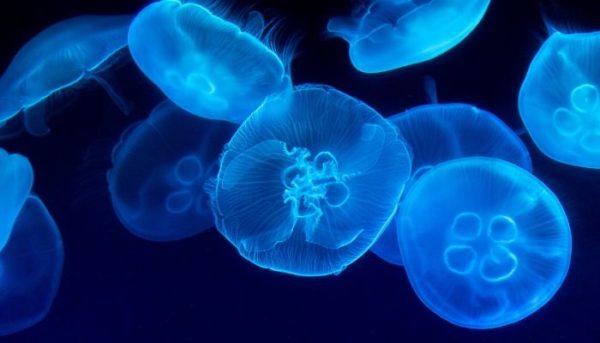Will Jellyfish Become a Regular on the World’s Menu?
Blooms of jellyfish could shape up as an environmental disaster, unless researchers can transform them into a high-volume food source.
While warmer temperatures aren’t good news for many species on the planet, the gelatinous jellyfish are expected to bloom.
To help combat the numbers and potential havoc swarms are known to cause – in 2006, a bloom disabled the supercarrier USS Ronald Reagan – European researchers have come up with a novel idea: using them as a sustainable food source.
One study took a close look at three common Mediterranean jellyfish and the potential for them to be marketed to a Western audience. The researchers concluded that a simple thermal treatment used on the jellyfish was successful and that it could act as “a possible first step towards a new ‘Western-style’ jellyfish food processing”.
“Jellyfish have been a gourmet food item for thousands of years in numerous Asian cultures so it’s not like eating [them] is something new,” says biologist Lisa-ann Gershwin, who has researched jellyfish for almost 30 years.
Using them as a sustainable food source makes sense to Lisa-ann because they are “clonal, so unlike when you take other fish out of the water – once you remove them they can no longer breed – when you remove jellyfish, the polyp are still there to crank out more of them”.

“It’s a fairly sustainable food source in that respect,” she says. “But – and there is always a but, right? – when you drag a net through a swarm of jellyfish to scoop them up, you also scoop up other fish. You get by-catch.”
Lisa-ann believes that as an extremely lean source of protein, jellyfish could be defined as a superfood, but asserts that she is “no nutritionist”.
Chris Yan, head chef of Lotus Dining, has cooked with the ingredient for many years and says in traditional Chinese medicine it is is used to clear heat (inflammation), detoxify, decrease blood pressure and dissolve phlegm. It’s a good source of protein and other nutrients, he says.
A 2015 study found “an appealing source of nutritive ingredients for the development of oral formulations, nutricosmetics and functional food” because of its “good protein quality and low calories”. Another researcher called it “a superfood for microbes”.
Because they are clonal, jellyfish are “truly, biologically immortal”, says Lisa-ann. “What better superfood health benefit than immortality, right?,” she jokes. “Who needs quinoa when you can live forever?”
-
Get your FREE ticket
- REGISTER FOR FREE
